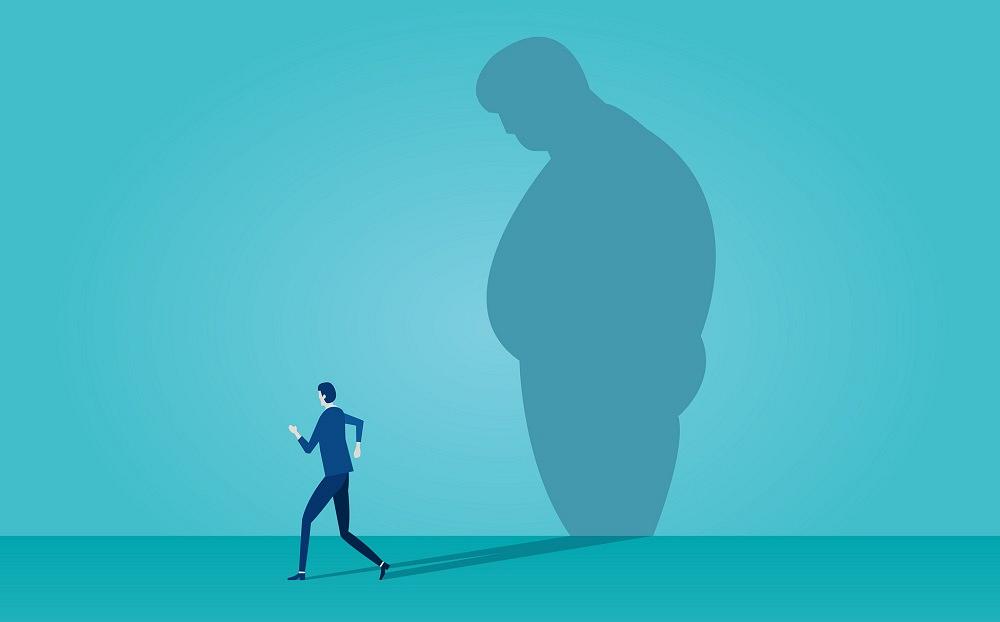Editor-in-Chief
- FMA
- The Fabricator
- FABTECH
- Canadian Metalworking
Categories
- Additive Manufacturing
- Aluminum Welding
- Arc Welding
- Assembly and Joining
- Automation and Robotics
- Bending and Forming
- Consumables
- Cutting and Weld Prep
- Electric Vehicles
- En Español
- Finishing
- Hydroforming
- Laser Cutting
- Laser Welding
- Machining
- Manufacturing Software
- Materials Handling
- Metals/Materials
- Oxyfuel Cutting
- Plasma Cutting
- Power Tools
- Punching and Other Holemaking
- Roll Forming
- Safety
- Sawing
- Shearing
- Shop Management
- Testing and Measuring
- Tube and Pipe Fabrication
- Tube and Pipe Production
- Waterjet Cutting
Industry Directory
Webcasts
Podcasts
FAB 40
Advertise
Subscribe
Account Login
Search
Don’t let unhealthy habits be a premature death sentence
Current coronavirus crisis reminds manufacturers and others why healthy eating and exercise is vital
- By Dan Davis
- April 16, 2020

Manufacturing workers often live unhealthy lifestyles because of long hours and shift work. Unfortunately, that makes them a prime target for health problems, especially during this COVID-19 pandemic. Getty Images
When my dad was diagnosed with esophageal cancer in 2003, I wasn’t too surprised. He was a longtime smoker, and when you grow up in Louisiana, which has one of the highest cancer mortality rates in the U.S., you almost expect it.
He was in his early 60s and weighed about 220 lbs. when he got the news. Close to a year later, after undergoing chemotherapy and surgery to remove the cancer from his esophagus, he got a clean bill of health, but he had shriveled to 135 lbs. The cure almost killed him before the cancer could.
I thought of those days as I read about some early deaths from COVID-19. I read about men in their 50s and 60s, whose pictures reminded me of my dad before cancer, heavyset individuals who looked like they were born to work hard and didn’t mind it. In fact, one was a metal fabricator from down south who happened to be the first coronavirus-linked death in his county.
As the media has stated repeatedly, the coronavirus is especially dangerous for those who are not all that healthy. These are people who have a history of smoking or who have medical conditions such as cardiovascular disease or asthma. The virus preys on the unhealthy, and that’s a big sector of the manufacturing population.
Those in manufacturing grab quick lunches, probably heavy on carbohydrates and fat and low on nutrition. Some don’t eat lunch at all. Workers likely don’t drink enough water. Shift workers probably have it the worst of all as they have to eat when it’s convenient instead of enjoying regular eating schedules. The kale chips aren’t a big hit in the vending machine.
That’s actually Missy Propper’s joke. She’s a nutrition and wellness coach in West Bend, Wis. She knows how difficult it is for those in manufacturing settings to get healthy because she was once one of them.
After working several years for a metal fabricator and clocking in 50-plus-hour workweeks, she had an epiphany on Mother’s Day 2014. Her then 9-year-old daughter asked her how old she was when her mother died. Propper said that she was 42, and her daughter replied, “I’m 9 and you are 42. I can’t imagine my life without you, mom.”
She knew a change was needed. Propper said she was 100 lbs. overweight and uncomfortably stressed. “I always knew that I needed to be doing something different,” she said.
She joined a health club and started working out regularly, but she realized that she needed to change her eating habits as well. Propper started doing research and enjoyed what she was learning about how to live healthy. She even became a nontraditional student, enrolling in a yearlong online program put together by the Institute for Integrative Nutrition.
Today she is the owner of Authentic Wellness, a business that helps clients find a health plan that is practical, but life-changing. In fact, in addition to her many individual clients, which include a lot of nurses, believe it or not, she works with two nearby manufacturing companies, occasionally going in to conduct presentations on some aspect of healthy living to interested parties at lunch.
Oh, she’s also much healthier. She’s almost half the person she was, from a weight perspective, and she has weened herself off medications, including those meant to stave off diabetes. “I didn’t want to go down that road,” she said.
Such a transformation only comes from a real commitment to change, Propper said. It’s a lifestyle change, which means there has to be an answer to the question “Why change?” Propper said that’s when a person can find real motivation. Unfortunately, it is often tied to an event like a death in the family or a frightening medical diagnosis.
She said that one of the main parts of her job is just demonstrating to people that they can eat healthy and affordably. As an example, she pointed to her husband who is a short-distance truck driver. He grills some chicken on the weekend, and then uses it as a protein in wraps filled with broccoli slaw, peppers, and carrots that he brings for lunch during the week. “He says it’s like a guy’s salad,” Propper said.
All major changes begin with a small step. So make a commitment to get in better shape. As this pandemic has proven, the world needs its metal fabricators. Don’t leave us when you’re needed more than ever.
subscribe now

The Fabricator is North America's leading magazine for the metal forming and fabricating industry. The magazine delivers the news, technical articles, and case histories that enable fabricators to do their jobs more efficiently. The Fabricator has served the industry since 1970.
start your free subscriptionAbout the Author

Dan Davis
2135 Point Blvd.
Elgin, IL 60123
815-227-8281
Dan Davis is editor-in-chief of The Fabricator, the industry's most widely circulated metal fabricating magazine, and its sister publications, The Tube & Pipe Journal and The Welder. He has been with the publications since April 2002.
- Stay connected from anywhere

Easily access valuable industry resources now with full access to the digital edition of The Fabricator.

Easily access valuable industry resources now with full access to the digital edition of The Welder.

Easily access valuable industry resources now with full access to the digital edition of The Tube and Pipe Journal.
- Podcasting
- Podcast:
- The Fabricator Podcast
- Published:
- 04/16/2024
- Running Time:
- 63:29
In this episode of The Fabricator Podcast, Caleb Chamberlain, co-founder and CEO of OSH Cut, discusses his company’s...
- Trending Articles
Tips for creating sheet metal tubes with perforations

Are two heads better than one in fiber laser cutting?

Supporting the metal fabricating industry through FMA

JM Steel triples capacity for solar energy projects at Pennsylvania facility

Omco Solar opens second Alabama manufacturing facility

- Industry Events
16th Annual Safety Conference
- April 30 - May 1, 2024
- Elgin,
Pipe and Tube Conference
- May 21 - 22, 2024
- Omaha, NE
World-Class Roll Forming Workshop
- June 5 - 6, 2024
- Louisville, KY
Advanced Laser Application Workshop
- June 25 - 27, 2024
- Novi, MI



























